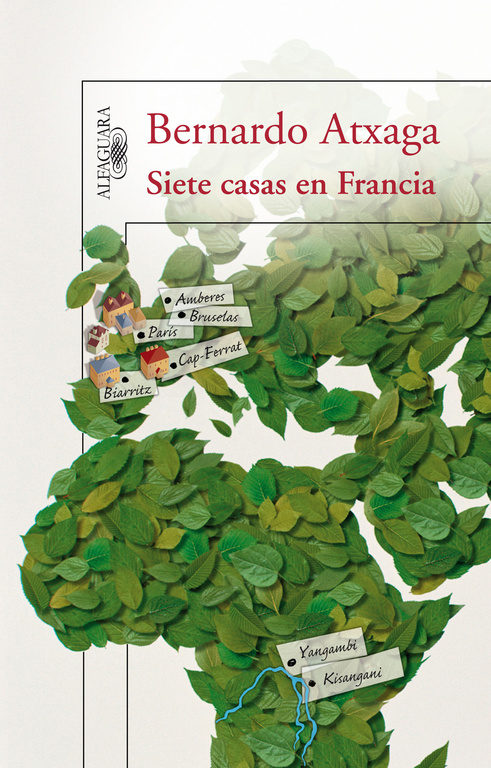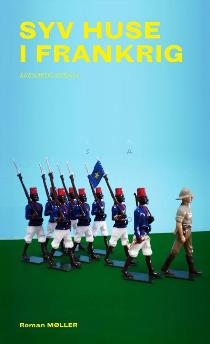“A literary voice of startling originality.” – Ed King, Sunday Telegraph
“A colourful tale of decay in the Belgian Congo… As irresistible as García Márquez, as forceful as Vargas Llosa.” – The Guardian
Seven houses in France describes in detail, with humour and a bit of satire, the profile of a group of peculiar characters that move between the ridicule, the intrigue, the uneasiness and the absurd, emphasizing their condition of victims of human impulses and defects. It is a novel that avoids being a dark chronicle or a vehement social denounce; it seeks, through humour and adventure, a metaphor that speaks of the sinister side of our world.
In the heart of the Congolese jungle rises the military station of Yangambi where a detachment of the Force Publique, the military wing in Africa of king Leopold II of Belgium, vegetates. The deafening cries of the chimpanzees and mandrills accompany the daily huge harvesting of rubber. Amusement options are few. Fear of an attack from the native rebels, from a cheetah, a lion or a black mamba, make hunting parties scarce. Letters from relatives, local newspapers and shooting competitions provide entertainment during daylight. Alcohol and playing cards at the Club Royal do it at night, as it does visiting the nearest brothels. But all this does not shun the atmosphere of apathy and melancholy that prevails among the members of the camp. Most of them spend the long days lost in dreaming… dreams of returning home to Belgium.
Captain Lalande Biran, poet and amateur painter, demands a virgin every week, has eyes d´or et d´azur and loses his wedding ring every other day, while he impatiently waits for the moment that his illicit enrichment by trafficking with mahogany and ivory will allow him to buy the seventh house he promised to his wife and pack his suitcases back. Lieutenant Van Thiegel, a lady-killer ex legionary that collects women and letters from his mother, dreams of opening a modern bar in Antwerp and of seducing Biran’s wife, of which he keeps a photograph in bathing suit that he stole from her husband. Official Chrysostome, the most prodigious shooter that ever stepped in Congo and who carries over his naked breast a blue ribbon and a gold chain, awakens the others curiosity because of his taciturn character and, specially, because of his nil interest in women. Servant Donatien and chief of waiters Livo, hide dark intentions behind their solicitous and obliging attitude, in waiting for the right moment to revert the situation
The news that the very same Leopold II, escorted by the duke Armand de Saint Foix (a close friend of Lalande Biran) will visit Yangambi to make a tribute to the Virgin in the near small island of Samanga, takes the station out of its lethargy. However, euphoria is brief, since in a short time arrives a letter informing that the procession will be finally only formed by a bishop and a reporter equipped with a Kodak camera to immortalise the moment.
Ambushes from rebels, servants distrust, black mambas venom and wild beasts may not be the main threats for the Belgian occupancy forces. Envy, ambition, jealousy, hate and other human feebleness moving among them can easily make blood run.


